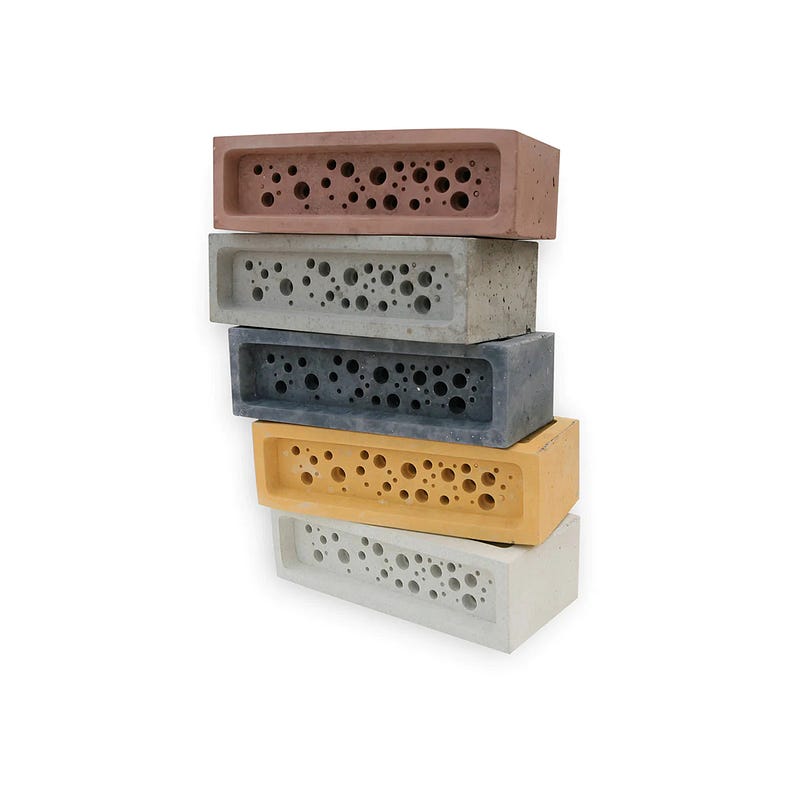A Controversial New Law in Britain for Bee Conservation
Written on
Understanding the Challenges for Bees
Bees are often regarded as beloved insects, cherished for their sweet honey, their charming appearance, and their crucial role in pollinating over 130 varieties of fruits and vegetables. They are indispensable to our modern diets. However, the alarming decline in bee populations due to various threats such as parasitic mites, pesticide usage, habitat destruction, and the overshadowing focus on honeybees poses significant challenges.
In response to this crisis, innovative solutions like bee vaccination have emerged, specifically beneficial for honeybees, although they don’t assist native bee species.
The New Initiative in Brighton and Hove
Brighton and Hove has introduced legislation aimed at enhancing habitats for native bees. While the intentions behind this law are commendable, the effectiveness of such measures may be questionable.
Building Inadequate Habitats
Mason bees, which are the primary focus of this initiative, are solitary creatures that do not live in colonies. Each female is fertile, and they seek out narrow gaps or natural tubular spaces to nest. After selecting a site, they create a significant pollen ball, laying eggs in a specific order before sealing the nest to explore new locations.
The proposed "bee bricks" are designed with tube-shaped holes intended as nesting sites for these solitary bees. However, there are multiple concerns regarding their efficacy.

Issues with Bee Bricks
Firstly, the materials used in bee bricks are not breathable, potentially causing high humidity levels that can lead to the decay of pollen and eggs. Many commercial bee houses made from bamboo also trap moisture, creating unsuitable environments for bees.
Secondly, the single entrance design complicates cleaning efforts, allowing old debris to accumulate and rendering the holes ineffective over time. Some experts suggest that leaving the bricks uncleaned may foster beneficial microorganisms, while others advocate for regular cleaning to prevent the buildup of detritus. Timing is critical to avoid harming the developing larvae.
Moreover, the bricks may attract unwanted pests and parasites.
A Better Alternative for Bee Housing
While the concept of bee bricks is intriguing, they are not the ideal solution for solitary bees. A superior design would involve removable paper liners that can be replaced annually, allowing for fresh nesting holes. This system mimics a hotel cleaning service, ensuring cleanliness and hygiene for the bees.
Using breathable wood for these houses would help mitigate moisture issues, and an overhang would protect against rain.
There are excellent resources available to guide individuals in constructing effective solitary bee hotels, created by researchers experienced in raising these bees.
Holistic Solutions for Bee Conservation
Creating suitable habitats is only part of the equation. Solitary bees typically forage within a short distance of their homes, necessitating the presence of flowering plants, particularly native species.
Additionally, the resurgence of neonicotinoid pesticides poses a significant threat to bees. Although previously banned in Britain, these chemicals have seen a return, particularly for sugar beet cultivation.
In the U.S., neonicotinoids remain legal in most states, with the EPA set to review their usage in 2024.
To actively support solitary bees, consider the following actions:
- Plant local wildflowers to provide food sources for bees.
- Invest in or create a high-quality mason bee house made from wood, ensuring it is well-anchored and features removable inserts for easy cleaning.
- Reach out to your local representatives to advocate for a ban on neonicotinoid pesticides.
In Conclusion: Effective Strategies for Supporting Bees
It’s crucial to prioritize the wellbeing of bees, and the awareness shown by Brighton and Hove regarding the plight of mason bees is commendable. However, assisting bees requires thoughtful strategies.
Just as providing inadequate housing for the homeless is not a solution, offering substandard habitats to solitary bees is equally misguided. Proper bee houses must be breathable and easy to clean, and providing food through flowering plants is essential, as is the elimination of harmful pesticides.
Consider planting flowers or establishing a sturdy, well-constructed solitary bee box to support local bee populations. Remember, mason bees are generally non-aggressive and will only sting if provoked.
Ultimately, all bee species deserve our attention and care.